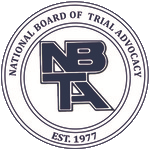Nursing Home Abuse Resource Guide
In an effort to help families who have had their lives impacted by nursing home neglect or abuse throughout Kentucky, Golden Law Office has compiled the following list of statistics, data, definitions, resources, prior case information, and details on how to report abuse, neglect, or exploitation.
Our goal in creating this guide is to present as much useful information as possible on one easy-to-read page. We will keep this page as updated as possible.
Nursing Home Abuse and Neglect Statistics in Kentucky
- Kentucky’s nursing homes make up .1% of the total of all nursing homes in the nation. But Kentucky’s nursing homes make up 30% of the top ten worst nursing homes list ranked by number of serious deficiencies.
- There are over 15,000 nursing homes in the United States. Three of the top ten worst nursing homes, ranked by number of serious deficiencies– including #1 in the nation– are located in Kentucky.
- Research indicates that one in four residents experience abuse in the nursing home.
- Studies found that 92% of nursing homes employ at least one person with a criminal conviction. Overall, 5% of all nursing home employees have a criminal conviction.
- Research shows that there is a correlation between people with criminal convictions and people who commit abuse.
- Kentucky’s nursing homes have paid 8.5 million dollars in penalties to the federal government for deficiencies in care over the course of the last three years.
Defining Abuse and Neglect
The Commonwealth of Kentucky Cabinet for Health and Family Services defines elder abuse as presenting with the following symptoms and signs:
Neglect
- Obvious malnutrition, dehydration
- Dirty, uncombed hair and offensive body odor
- Torn and dirty clothes that are not appropriate for the weather
- Unshaven
- Hoarding
- Lack of glasses, dentures or hearing aid
- Lack of medical care
- Apparent weight loss
- Bedsores
- Exterior or interior of the home in poor repair
- Filthy living environment, strong odors
- Little or no food in the refrigerator, or decayed and moldy food
- Many pets or animals who appear neglected
- Garbage or litter; excessive alcohol containers
Physical Abuse
- Frequent injuries such as bruises, burns, broken bones, especially when the explanation of the injury seems unrealistic
- Multiple bruises in various stages of healing, particularly bruises on inner arms or thighs
- Chronic or acute physical illness
- Pain from being touched
- Obvious malnutrition, dehydration
- Loss of bowel and bladder control
- Many medicine bottles in sight; seems sleepy, sedated
- Appears frightened or withdrawn
- Never leaves the house; never allowed visitors
- Never mentions family or friends
- Confined to a chair or bed
- Locked in a room or tied up
- Clothes that are not appropriate for the weather
Sexual Abuse
- Evidence of sexually transmitted disease
- Irritation or injuries to the mouth, genitals or anus
- Upset when changed or bathed
- Fearful of a particular person
- Loss of bowel and bladder control
Emotional and/or Psychological Abuse
- Isolated from family and friends
- Sudden dramatic change in behavior: appears withdrawn, depressed, hesitant to talk openly
- Caregiver won’t let victim speak for themselves
- Caregiver scolds, insults, threatens victim
- Trembling, clinging
- Fearful, hopeless, anxious
- Lack of eye contact
- Confused, disoriented
- Angry, agitated
How Do I Report That My Loved One Was Abused?
There are a number of state agencies in Kentucky that are responsible for taking and investigating reports of abuse and neglect, whether suspected or known. It’s important to make a report as soon as possible after you suspect or know of the abuse or neglect and to give your real name and the name of the victim when making such a report.
Ask that your complaint be recorded in writing and that you receive a copy of all materials associated with your report and the investigation.
The numbers to contact include:
Kentucky Adult Protective Services – 1-800-752-6200
Office of Inspector General – 502-564-7963
Office of Attorney General – 877-ABUSE-TIP
Where appropriate, contact local law enforcement or 911. We also recommend you consult a Kentucky nursing home abuse attorney to follow up on your reports.
Nursing Homes and Corporate Control
- According to the CDC, 69.4% of nursing homes in the United States are for-profit entities. The for-profit nature of these entities means that corporate managers are incentivized to cut costs at the expense of vulnerable patients.
- Over time, nursing home corporate structures have become more and more complex, placing six or more layers of shell corporations in between the nursing home, its corporate manager, and its corporate owners. Stevenson, Bramson, and Grabowski, Nursing Home Ownership Trends and their Impact on Quality of Care: a Study Using Detailed Ownership Data from Texas, J. Aging Soc Policy. 2013; 25(1): 30-47.
- One of the motivators and results of this increasing complexity is the fact that nursing homes end up avoiding civil liability for bad care.
- In order to fight massive multistate companies that hide assets, nursing home lawyers need to be fluent in the law of corporate formation and control. This includes lawyers who are versed in how to determine the corporate structure and to pierce the corporate veil, a legal doctrine designed to bust through the series of shell corporations and hold the true owners liable for bad care.
How Do I Determine if My Loved One’s Nursing Home is Safe?
Several important resources exist for the public to determine the quality of care a nursing home provides:
- Pro Publica Nursing Home Inspect
- Aggregates data from medicare.gov into tools that allow you to compare nursing homes by state and nationally.
- CMS Nursing Home Compare
- Run by the federal government.
- Ideal for comparing two specific nursing homes.
- The nursing homes are assigned a 1-5 “star rating,” based on staffing, quality measures, and health inspections conducted by the state.
- The star rating should tell consumers how a nursing home ranks with other nursing homes across the country in these key areas.
- The key area of staffing is important because it is directly correlated to the quality of care residents receive. i.e., more RN care results in better overall care.
- Kentucky Nursing Home health inspections are also a matter of public record. You can find them here.
- There are drawbacks to this method of research. You must know the registered name of the facility. Additionally, the health inspection results are long, hard to read, and often confusing.
All of these sources, at least at some level, rely on the nursing home to accurately report information to the government. There is no guarantee that nursing homes do that. Nursing homes should be held accountable for not only following the proper standards of care, but for properly reporting abuse when it occurs as well as accurately reporting all data that the public uses to determine quality of care.
Golden Law Office has recently filed a class action complaint against a nursing home chain for inaccurately reporting staffing numbers which, in turn, caused the facility’s star rating to be inaccurate. Our attorneys believe that by holding these facilities accountable for information they provide regarding the quality of care they provide, Kentucky families can become better informed on how to ensure their elderly loved ones remain safe. By holding these facilities accountable, we can also help increase the quality of care in Kentucky’s nursing homes.
For more information on this class action or to potentially become involved, please get in touch with us today.





